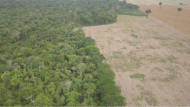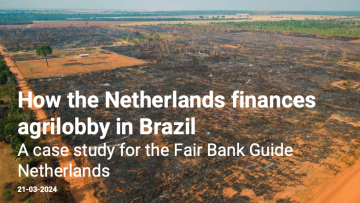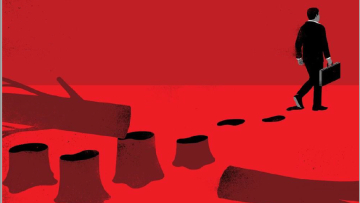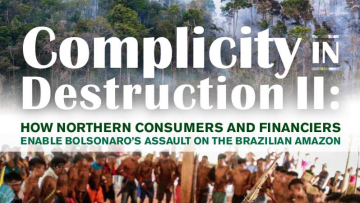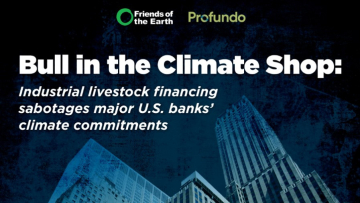
Company – On record
This profile is no longer actively maintained, with the information now possibly out of dateBankTrack
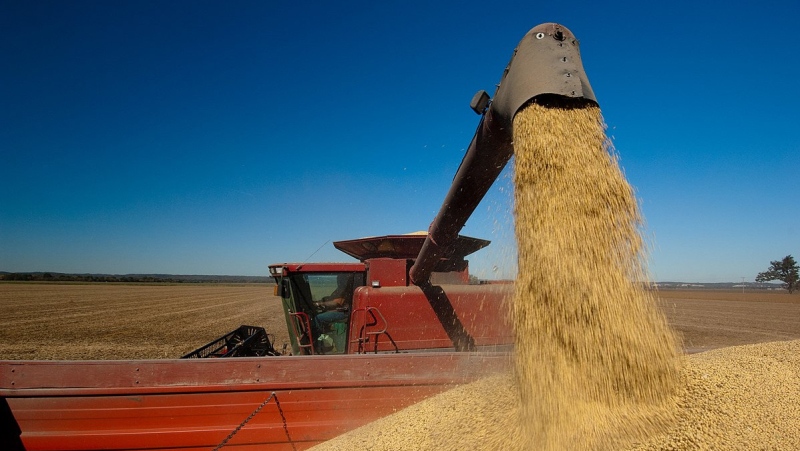
Company – On record
This profile is no longer actively maintained, with the information now possibly out of dateBankTrack
Why this profile?
Louis Dreyfus' operations, particularly in the soy and orange supply chains, are implicated in several social and environmental issues, such as poor working and living conditions, and deforestation of the Amazon and Cerrado biomes. Louis Dreyfus forms part of a group of companies which dominate the global soy trade. Taken together, the supply chains of Louis Dreyfus, Bunge, Cargill, ADM, COFCO, and Amaggi are associated with two-thirds of the total deforestation risk directly linked to soy expansion, the majority of it in the Cerrado.
What must happen
Banks and other financial institutions should not provide any new financing for Louis Dreyfus, until it is proven and verified that its supply chains respect workers rights and are not linked to deforestation of these biomes.
| Sectors | Agriculture for Industrial Crops , Agriculture for Biofuels, Agriculture for Food Crops, Chemical Manufacturing, Commodities Trading |
| Headquarters |
|
| Ownership |
The Louis Dreyfus family has ownership of approximately 95%, and LDC employees and management have around 5%. |
| Subsidiaries |
|
| Website | https://www.ldc.com/ |
Louis Dreyfus Company (LDC) is a leading processor and trader of agricultural commodities. LDC is active in over 100 countries and indirectly reaches a consumer base of 500 million people by originating, processing, and transporting approximately 81 million tons of commodities annually. Revenues in 2017 were USD 43 billion, and LDC employs 19,000 people worldwide.
Louis Dreyfus Company is one of the major processors and exporters of soy in South America and one of the largest commodity traders globally. The company has significant oilseed crushing facilities in Brazil and Argentina, as well as having an annual capacity of several million metric tons in China. LDC is among the top ten soy exporters in Argentina and among the top five in Paraguay and Brazil. The company’s palm oil operations are also significant with the company handling over 2 million metric tons of palm oil and derivatives in 2015. It is also a major producer of biodiesel.
Social and human rights impacts
Working and living conditions LDC is the world’s third-largest orange juice producer, and its sector operations in Brazil are linked to several working and living conditions issues. According to a report from Public Eye and Repórter Brasil, LDC has committed nearly 200 violations of labour law in the Brazilian citrus sector since 2010, approximately half of which relate to workers’ health and safety.
Pickers working for the company's suppliers reported that they do not earn the statutory minimum wage equivalent to around CHF 190 per month. Since the COVID-19 outbreak, in comparison to 2019, the real wages are even lower. With the social distancing rules on plantations, fewer pickers are being recruited, further increasing the pressure to be highly productive. The pickers are employed for the harvest season, which lasts between eight and eleven months, under precarious conditions and contracts that include daily productivity targets. Seasonally employed pickers at LDC are also denied access to the company’s healthcare benefits. In 2018, the multinational was ordered to pay a fine equivalent to 122,400 Swiss francs, after an inspection five years earlier revealed that 34 employees had been living in a former henhouse.
Environmental and climate impacts
Deforestation and biodiversity loss According to the Trase report, Louis Dreyfus is among the six major companies operating in the Brazilian soy supply chain (along with Bunge, Cargill, ADM, Amaggi, and COFCO), which traditionally have dominated the trade of soy from Brazil and were responsible for 58% of the soy exports in the country and exposed to a 68% direct risk of deforestation between 2006 and 2016. The main areas impacted are the Amazon rainforest and the Cerrado savanna, more specifically in the Matopiba region, the new agricultural frontier of the soy expansion.
Compared with the other global traders, LDC’s deforestation footprint is relatively small – its presence is mostly located in already consolidated soy growing areas. However, the company is also exposed to deforestation risks through its joint venture with Amaggi, the Amaggi & LD Commodities. Between 2009 and 2016, the joint-venture exported 2.6 million tonnes of soy from Matopiba (9% of all soy exported from the region), and was exposed to much higher relative deforestation risk than the parent companies: 8 ha per 1,000 tonnes.
In 2018, the company announced a policy to eliminate the destruction of native ecosystems and endangered wildlife from its soy supply chain. However, NGOs state that since the deforestation commitment, there was no detailed action plan stating clear objectives and deadlines.
LDC's palm oil supply chain is also linked to deforestation: the biggest and the fifth largest deforesters in Southeast Asia in 2018, the Malaysian company Bintulu Lumber Development (BLD) and the Indonesian Musirawas Group respectively, are suppliers of LDC.
Between 2013 and 2018, Louis Dreyfus Company received over USD 4.8 billion in lending and underwriting from 36 U.S. and EU financial institutions, with the banks HSBC, BNP Paribas, Credit Suisse, Crédit Agricole, and ABN Amro as the largest financiers. See below for more details.

